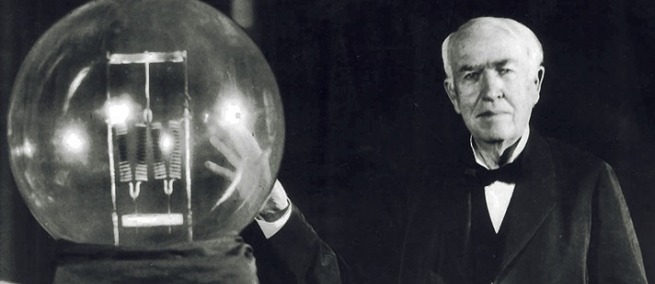
Academy Award-winning writer Graham Moore, of the Sloan-supported film THE IMITATION GAME, has a new book and film about a rivalry between three of history’s greatest scientists. Published in August of 2016, The Last Days of Night centers on Nikola Tesla, Thomas Edison, and George Westinghouse. In addition to inventing the light bulb, Edison invented a method for distributing electricity called direct current. Westinghouse helped develop an alternate—alternating current. Tesla, who moved to New York to work for Edison, then broke with him and invented a key technology to help disseminate alternating current.
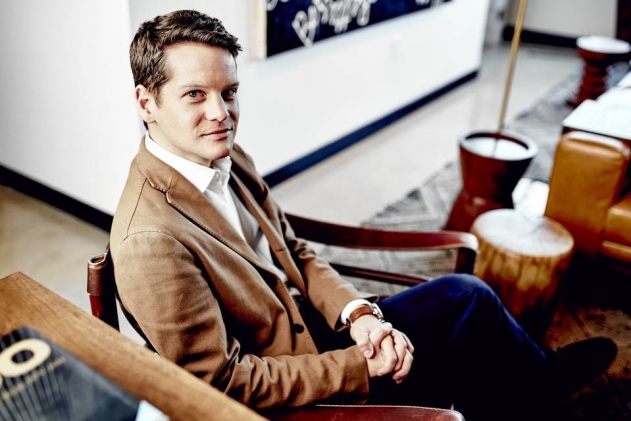
Graham Moore’s The Last Days of Night is told from the point of view of a lawyer, Paul Cravath, who represented Westinghouse in “The War of the Currents,” as this rivalry was called. Cravath was founder of the prominent law firm now called Cravath, Swaine & Moore. Graham Moore has adapted his own book into a screenplay for a feature film, which will be directed by Morten Tyldum and star Eddie Redmayne. Science & Film spoke on the phone with Moore about his book and film.
Science & Film: How did you approach telling the story of three great technological pioneers: Thomas Edison, George Westinghouse, and Nikola Tesla?
Graham Moore: One of the things that excited me about The Last Days of Night was writing about this great scientific battle between Thomas Edison and George Westinghouse, but telling it from the perspective of Paul Cravath, the clever young lawyer who is tasked with managing the legal battle between them. THE IMITATION GAME is so focused on being from Alan Turing’s perspective. Whereas The Last Days of Night is an opposite approach–here is the story of the greatest scientific rivalry of the 19th century, between Edison, Westinghouse, and Tesla, over the invention of the light bulb, but you’re not going to get it from any of their perspectives. In some sense Paul, our protagonist, felt like my lens into the story. I am not a scientist, I am not a mathematician, and I am certainly not one of the greatest scientists or mathematicians of the century. I felt like Paul, this reasonably intelligent normal person trying to fathom the minds of these giants.
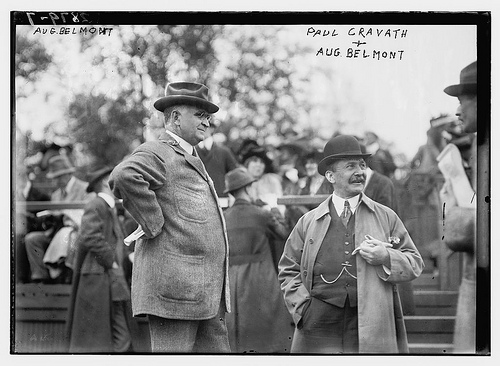
S&F: Given that you are one of the first people to represent these giants on screen, do you feel any pressure to portray them as great?
GM: Whenever you are dealing with real characters, there is a responsibility to tell their story fairly. What that means is telling the historical narrative as accurately as possible, and abbreviating only for timing and pacing.
I did an exercise when I was writing the novel with my research assistant, where we went through the novel with three colors of highlighters and highlighted every sentence with one of these three colors. One color represented, statements of which we could say, I can prove 100% that this is true. The other color represented, statements of which we could say, I can prove 100% that this is not true. And then the third color represented, statements of which we could say, we think this is probably true but we can’t prove it. You always want narrative leaps to be done responsibly and know why you are making them. That reason has to be because it helps to build a narrative out of these real people’s true stories.
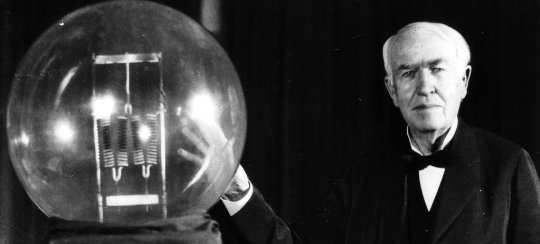
S&F: Is your novel characterized as historical fiction?
GM: Yes, and it is a novel. What is interesting is, the film world does not have an equivalent term for historical fiction. In a book, it is handy because I can write, most of The Last Days of Night did occur, but by putting the word “novel” on the cover there is an understanding of, okay we are not claiming that every sentence in it is provable. The novel actually ends with a ten-page author’s note where I go through the book and source everything and explain what is real and what is not.
With THE IMITATION GAME, it is really hard to know exactly what went on at Bletchley Park. There is a big scene at the end of the film where Alan Turing and his team throw all the records of their work into a big bonfire and burn them, and that really happened. In the same way, for a lot of the conversations between Cravath and Westinghouse there was no third party in that cigar smoke-filled study. I actually just went to New York to meet with the head of the Cravath law firm, and they showed me this box of correspondence between Paul Cravath and George Westinghouse that they have. I asked if I could see it for the book, and they said, no, because it is still protected by attorney-client privilege. As a non-lawyer I didn’t realize, until they told me, that this privilege is not waived by death. It is a cool story because there may be proof of some of these conversations in this box, but I will never know, because they will never give me access to it. A lot of the book and film are things that I think happened, and I have a lot of good reasons for thinking that they happened, but I cannot one hundred percent prove it.
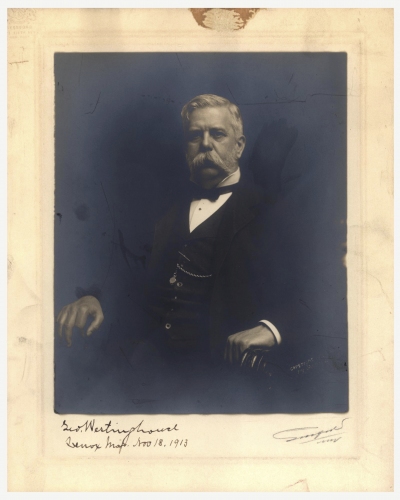
S&F: Did you consult with any specialists other than the Cravath law firm while writing the book?
GM: There is a list [in the book] of dozens of experts that I talked to: lawyers, scientists, electrical experts, and historians. The Edison Papers, which are stored at Rutgers University, are a great resource. Edison kept a diary almost every day of his life, and his papers are fully searchable online. The librarians at Rutgers talked me through things, and I even sent them sample chapters of the novel so they could read the dialogue and see if I had gotten his voice right.
S&F: Where are you now with the film version of The Last Days of Night?
GM: I finished the script, and we are in pre-production. Eddie Redmayne is playing the lead, Paul Cravath. We are going into production in 2017.
S&F: Are you happy to be working with the same team again?
GM: Yes. It’s funny, because it feels like we are high school juniors who went off to summer camp and had crazy summers, and now it is so nice to be back at school. It is a lot of the same behind-the-scenes team as THE IMITATION GAME: myself, Morten Tyldum who is the director, and Nora Grossman and Teddy Schwarzman who are the producers. THE IMITATION GAME was such a small film, it was done with no studio backing, and so we are excited to do THE LAST DAYS OF NIGHT in the same way.

S&F: If you were going to give advice to a film student trying to write about scientific or technological themes or characters, what would you say?
GM: Do not condescend to your audience; they are smarter than a lot of people give them credit for. I am really drawn to writing about scientists and other very smart people, or other very driven people–sometimes I think I only understand characters who are highly driven. I think audiences can understand complicated scientific concepts if they are explained in a lively, personal, emotional way. In the case of THE IMITATION GAME, when Alan Turing and Hugh Alexander are fighting over how to break the Enigma Code, there are scenes where they are just talking about mathematical concepts, but they are really talking about emotional issues between them, like how to approach difficult problems. Similarly in LAST DAYS OF NIGHT, I got really obsessed by how Edison, Westinghouse, and Tesla were three people who each had the same job and worked on the same problems, but they hated each other because they approached the problem so differently. They had completely different philosophical ideas about what invention means. Some bad advice that people get is, raise the stakes. I think that’s silly. If a character an audience identifies with wants something and they want that one thing so badly, even if that one thing is kind of esoteric, the audience is in it. I think scientists are passionate people and emotional people so stories about them can be written passionately and emotionally.
Graham Moore’s book The Last Days of Night was published by Random House. Its film adaptation, of the same name, is written by Moore, directed by Morten Tyldum, and stars Eddie Redmayne. The film plans to shoot in 2017. Stay tuned to Science & Film for more as the project nears completion.
TOPICS